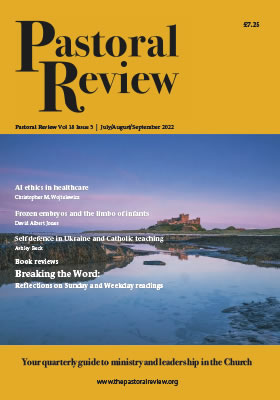How do we help people recover from trauma? A Director of Public Health, Jim McManus, looks at the pastoral challenges of responding to traumatic events, whether individual or collective.
Trauma and being aware of it
Traumatic experiences are for a surprising number of people a part of life. While there is more than one definition, and some nuance between them, in general, trauma can be defined as a psychological and emotional reaction to an extremely distressing event or experience. It can include emotional and physical responses. The experience of bereavement, being a victim of violence, seeing someone be a victim of violence, witnessing a killing and many other things can be severely traumatic. As we know more about trauma and the way it affects people, we also learn that while some people recover fully, there are others who can be re-traumatised (for example, the victim of domestic abuse failed by agencies or the emergency worker who has to deal with the aftermath of horrific incidents) for whom the trauma becomes enduring and complex. The trauma of people who have experienced abuse at the hands of the Church, for example, can be particularly enduring, complex and severe. And many survivors talk of experiences of being re-traumatised (i.e. further harmed or made to relive the original harm in a way which prevents recovery and growth) by the way the Church as an institution has responded.



